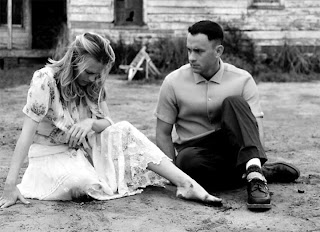The relative success or failure of a film today is generally measured, at least by the film industry, in terms of its box office prowess. However, it goes without saying that in the history of cinema, so many of the truly great pieces of art made little or no money for entirely valid reasons. It has often been the case that a perfectly acceptable film has failed to find an audience.Today's flick of the day, The Day of the Jackal is one such film. Based on a best-selling novel and with an expensive location shoot, this political thriller was a failure on its release in 1973.
is one such film. Based on a best-selling novel and with an expensive location shoot, this political thriller was a failure on its release in 1973.
Set in 1963, Jackal is the story of the attempts of the OAS, a network of French soldiers formed with the intention of killing French President Charles De Gaulle in retaliation for his betrayal of Algeria. After a string of failures and in desperation the OAS decide to hire a foreigner, a contract killer known only as The Jackal. Played with a cool detachment by Edward Fox, chosen as he was a then relative unknown, the film charts his meticulous planning for the main event which climaxes the film. Running concurrently to this is the efforts of the French police to capture the Jackal, led by Inspector Lebel, played by the ever ever wonderful Michael Lonsdale. The film is tense and engrossing and climaxes with a dramatic and surprising ending on the streets of Paris.
Jackal is directed by Fred Zinnemann, perhaps best remembered today for High Noon and From Here to Eternity
and From Here to Eternity , the film is a solidly rewarding thriller. The film oozes substance and expense throughout, with a strong supporting cast of British theatricals including a young Derek Jacobi and a host of European location shoots. This would all be for nought were it not for the fact that film is genuinely entertaining with a strong performance from Edward Fox, giving the character an icy self-assuredness. It helps of course that Forsyth's source novel is filled with the kind real world detail and historical events that give this film an air of realism and raise it above the rest of the genre.
, the film is a solidly rewarding thriller. The film oozes substance and expense throughout, with a strong supporting cast of British theatricals including a young Derek Jacobi and a host of European location shoots. This would all be for nought were it not for the fact that film is genuinely entertaining with a strong performance from Edward Fox, giving the character an icy self-assuredness. It helps of course that Forsyth's source novel is filled with the kind real world detail and historical events that give this film an air of realism and raise it above the rest of the genre.
Though a box office failure, this is an interesting thriller and well worth a a reappraisal. As with almost all original stories, this was the subject of a remake in 1997 starring of all people Richard Gere and Bruce Willis. Suffice as to say, though only loosely based on the original, it was awful though perhaps worth viewing if only to experience the breathtakingly horrible Irish accent sported by Gere.
In the final reckoning, this is a decent if not spectacular 70's thriller with a strong cast and an engaging tale at least partially drawn from recent French history. If anything, it shows that you cannot judge a book by its cover or a film by its box office takings. Zinnemann would direct two more film's before his death in 1997 while Edward Fox has built a solid career as a TV actor. Well worth a look.



























